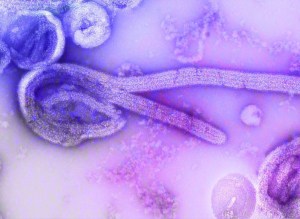Stay Healthy: How To Prevent Getting Sick

- What Are Germs? How Long Do Germs Live?
- What Is The Function Of The Immune System?
- What Causes A Weak Immune System?
- How To Prevent Getting Sick
- How To Boost Your Immune System: Immune System Booster Vitamins
- Essential Oils For Sickness
- What Is Corona? Coronavirus Explained
- What Does Quarantine Mean?
- Quarantine Vs Social Distancing Vs Self-Isolation
- What Is A Virus? How Are Viruses Spread?
- How Long Does A Virus Last? Virus Symptoms Explained
- How To Treat A Virus
- What Are The Symptoms Of The Flu? Can You Die From The Flu?
- How To Get Rid Of The Flu? How To Treat The Flu?
- How Is The Flu Spread?
- What Is A Pandemic? Pandemic Definition
- Epidemic Vs Pandemic Explained
- Disaster Preparedness Kit
- Conclusion
‘COVID-19’ is the rather innocuous name of the ongoing coronavirus disease. An infection which began in China, and is spreading relatively fast, growing in numbers and influence. Initially, this was a virus that only affected animals, but to quote Dr. Ian Malcolm in Jurassic Park: “life, uh, finds a way”. Like others before it, this virus has mutated and made the leap from animals to humans, making it a zoonotic infectious disease.
The coronavirus family is rather large, and several of these viruses have made the transition to humans. Mostly, they are rather harmless and non-fatal, but the recent mutation of the virus has caused the whole world to pay attention. The viral infection is of the severe acute respiratory syndrome (SARS) variety.
With over 100,000 confirmed cases and an international reach, this outbreak has been classified by the world health organization (WHO) as a “Public Health Emergency of International Concern”. With each passing day, there are more cases around the globe. Over 100 countries have already been affected by this new incarnation of the virus.
What Are Germs? How Long Do Germs Live?

Microscopic image of Ebola virus.
Plainly put, germ cells are microbes which can make the human body sick. They bypass the immune system – due to their small size – and can potentially cause the onset of disease and illness. Germs can invade any living organism, be it a plant, a person, or an animal.
What Are Germ Cells?
Germs divide into four major categories:
Bacteria
Bacteria reproduce by dividing themselves. Some are good, and they aid with digestion and other healthy processes. Others are hostile, and they can infect the throat, nose, lungs, and other areas of the human body.
Viruses
Viruses require a host in order to live and reproduce, though at times they can survive on surfaces (temporarily) before they get inside living cells. A virus may spread and cause sickness, attacking different systems inside the human body.
Fungi
A fungus is an organism very much like a plant. But unlike plants, they receive their sustenance from animals, people, and other plants. Many types of fungus are non-threatening, and are generally safe for the healthy population.
Protozoa
Spread primarily through water or other kinds of moisture, these single-cell organisms get into the human intestines and cause an infection. The result of protozoa infection may express itself as stomach issues coupled with pain.
How Long Do Germs Live On Surfaces?

The spread of germs on surfaces is sometimes inevitable.
Some microbes can live without a host for a week or more, while others can only survive a couple of hours. The survival rate increases dramatically in the case of hard surfaces like steel, glass, or plastic. It depends on the temperature, the humidity, and the nature of the germ itself. An adequate and hospitable environment will mean that the germ stays around longer.
Does Alcohol Kills Germs?
Alcohol can indeed kill many germs, but it’s not 100% effective, because it does not affect every microbe. A run-of-the-mill hand sanitizer, for instance, is a useful and very efficient killer. Alcohol (at least 70%, like ordinary rubbing alcohol) has the potential to stop 99.9% of bacteria, fungi, and certain viruses seconds after being applied.
Does Vinegar Kill Germs?
Vinegar, a well-known antimicrobial agent, has the power to kill many different kinds of germs. But much like alcohol, it is not 100% effective. Also, it is worth noting that vinegar is not an officially-recognized disinfectant or sanitizer. The acid in the vinegar kills bacteria and viruses, but some are resistant to it.
What Is The Function Of The Immune System?
The human immune system’s sole function is to protect the integrity of the body in which it resides. Natural immunity has different lines of defense, the first of which is the skin and other physical barriers. The second line is nonspecific resistance, and the third is specific resistance.
- The skin and physical barriers aim to keep invaders out.
- Nonspecific resistance expresses itself as something like fever or inflammation, meant to drive the invaders out.
- Specific resistance is the last line, it activates after the first two fail to stop the invasion.
What Causes A Weak Immune System?

Man with weak immune system.
Many things could be the cause of weakened immunity in human beings. Lack of adequate sleep, lack of hydration, lack of proper nutrition, stress, depression, and anxiety may also play a part. Not to mention diseases and conditions which naturally target and weaken different lines of defense. One such example is AIDS which kills white blood cells.
Smoking and/or unhealthy intake of alcohol can also contribute to the gradual deterioration of a person’s immune system. There are also genetic components, as some people genetically have a higher susceptibility than others.
How To Prevent Getting Sick

Washing hands can prevent the spread of germs.
Getting sick is never fun, and that’s an understatement if ever there was one. As individuals, we react to sickness differently, but normally it takes a toll on the body, and often on the mind. While some illnesses are seen as altogether harmless and fleeting, some illnesses can stick around and seriously start to take over, if left to their own devices.
If you’re wondering how to avoid getting sick, listen up. Some steps which can be taken to prevent sickness are: frequent hand-washing, getting enough quality sleep, living an active lifestyle, eating right, and avoiding contact or proximity with those who are sick.
How To Boost Your Immune System: Immune System Booster Vitamins

A variety of supplements.
Vitamins are micronutrients that are essential for the proper function of the human body. Most of them are acquired through one’s diet, others – like vitamin D and vitamin K – are acquired through natural processes like external sunlight (vitamin D) and internal gut function (vitamin K). Vitamins for the immune system are sold in pharmacies, but it can also be gained with proper dieting.
Vitamin deficiencies can be a real issue as they have the potential to cause a host of problems. When your body is deficient in certain elements, it may cause physical and mental issues. Anything from lethargy and scaly skin, to problems with vision, anxiety, and low levels of white blood cells. A weak immune system can be helped with immune booster vitamins, and there are also immune system booster foods.
Which foods to eat when sick? Depends on the sickness, but here are a few popular ones which may provide a respite and bring some healing along with them:
- Tea – a classic. With honey or without, it’s a powerful liquid.
- Honey – with or without tea! It can work wonders.
- Ginger – a real immune system booster, chock-full of vitamins and minerals.
- Garlic – high in antioxidants and essential minerals, it’s a real fighter.
Supplements to boost the immune system have always been around, although now you’ll find them in capsules and pills instead of through plant extracts or other food sources. If you’re planning to start taking supplements for heightened immunity, consult with your physician about how to strengthen your immune system. Your doctor knows your medical history and will be able to advise.
How to boost your immune system? In a nutshell, it’s about having the right genes and making the time to live the kind of life which keeps your body and mind in optimal condition. People who are getting enough nutrients through their diet, and who stay active physically and mentally – their immune system requires no boosting, really.
That’s the ideal, of course, and many people cannot make it work, so they take vitamins for their immune system. Fair enough, since if you know you cannot get it from your food and lifestyle, at least get it from somewhere, and know that you’re covered. Also, it’s recommended to get blood work done once a year, to know where you are at, nutrient-wise.
Essential Oils For Sickness

Bottle of essential oil.
For thousands of years, essential oils have been used for purposes of medicine, cosmetics, religious and spiritual practices, and “feel good” therapy at large. You can produce these oils, unlike base oils or mineral oils, through means of distillation, and as such, they are extremely volatile and highly potent. There are close to 100 essential oils in the world right now, some more known than others.
Several essential oils possess unique qualities that make them some of the most sought-after remedies in the natural world. Now, just to be clear: essential oils are not meant to take the place of mainstream medicine. Before beginning any kind of herbal treatment or mixing Western and Eastern practices, run it by your GP.
Depending on the sickness and the conditions, you can use essential oils in several ways: inhale the fumes from the vial or by burning the oil in a diffuser; apply the oil topically after diluting it with a carrier oil; add your essential oils to your prescribed or non-prescription medicine – again, only after getting the green light from your doctor.
A few oils which have been used in the past to combat diseases and infections of different kinds are: peppermint, lemon, lavender, eucalyptus, tea tree, and orange. But there are many other oils out there, each with its own abilities and attributes.
What Is Corona? Coronavirus Explained

Microscopic image of coronavirus.
Coronaviruses are microbes that cause diseases in animals and humans, though effects differ. In humans, the virus infects the respiratory tract, which brings on symptoms resembling a common cold or the flu.
What is coronavirus? Corona is Latin for crown, and the viruses were given this lordly name due to their halo-like shape. Effects of a corona infection can range from very mild to fatal, and some have already fallen prey to this newest mutation. The virus attacks the organs we use for breathing, making it a danger to those who are already at a higher risk (e.g. the sick and the elderly).
These viruses were first discovered in the 1960s, and the recent outbreak of this flu-like virus has its origins in Wuhan, China. The first case was admitted to a Wuhan hospital on December 1st, 2019. By the end of the month, the local center for disease control and prevention in Wuhan found they had no explanation for the cluster of cases that was growing suspiciously. They notified the WHO as China began to take measures against the spread of the virus.
As previously mentioned, this group of viruses started out as animal-borne viruses, which caused diseases that affected (non-human) mammals and birds. Coronavirus infection in dogs was first identified in the early 1970s. It has also been seen this time around, with a Hong Kong dog contracting a low-level infection from its human owner.
Authorities are recommending owners do not kiss their pets, in order to minimize risk and contain the outbreak as much as possible. Experts agree that domestic animals do not pose a risk for humans, even though they can test “weak positive” for the virus. Like so many other cases and conditions, it is better to be safe than sorry. As for coronavirus in cats, feline coronavirus (FCoV) has been around since the late 1960s.
Canine and feline strains of coronavirus do exist, but at the time of writing these words, domestic pets are not at risk of contracting or spreading the newly-identified COVID-19. There are currently 7 known strains of human coronavirus.
With every viral infection, there is a time in which the infection has physically begun, but no symptoms can be discerned yet. This window of time is called an incubation period. The virus incubation period of SARS-CoV-2 lasts between 2 to 14 days. Those who are suspected of having the virus/disease are put in quarantine for at least two weeks.
What Does Quarantine Mean?

Closed door.
Quarantine means restriction and limitation of movement and interaction. If you show symptoms of the virus but do not test positive, quarantine is the course of action. This is done in order to decide whether or not the virus is merely in its incubation period.
With the current human coronavirus outbreak, experts are recommending that suspected individuals be in quarantine for 14 days. This does not mean that those being quarantined are infected. It is a measure to minimize the chances of infection and continuing the outbreak.
Being in quarantine does not mean no human contact whatsoever. However, it does mean you should seriously limit your interactions, stay indoors, wear a face mask, and don’t share dishes, towels, or eating utensils. Frequent hand-washing is highly recommended in any case. Perhaps even more so in places where there are individuals in quarantine.
Quarantine Vs Social Distancing Vs Self-Isolation
While quarantine has everything to do with a suspected infection, the acts of social distancing and self-isolation are a precaution against becoming infected to begin with. They’re steps meant to be taken by those who are not suspected of contracting anything.
Social distancing is about keeping a physical distance between individuals who are out in public. People still need to get to work, to walk their dogs, to exercise, to step out and buy pharmaceutical products or groceries, etc. During an outbreak/epidemic (such as COVID-19), it’s recommended to practice social distancing whenever you are out and about.
Distancing yourself includes not gathering in large groups, not extending physical contact greetings, and keeping a literal distance of 4-5 feet between individuals, whenever possible. Furthermore, only one person goes out with the dog, only one person goes out to buy groceries, or goes to the pharmacy, etc. Again – whenever possible.
Social distancing only applies to physical contact and its derivatives. Therefore, virtual social gatherings and interactions are actually highly recommended. They may even prove to be a great help to those who are feeling alone and/or lonely.
Self-isolation is the term used when a healthy individual – one not suspected of carrying the infection – separates himself or herself from any unnecessary contact with others or the outside world. Plainly put, self-isolation means staying at home. When you are self-isolated, you stay at home and leave it only when there is a pressing need.
Isolating oneself at home and practicing social distancing when outside – these two actions are key in preventing the continuous spread of COVID-19.
What Is A Virus? How Are Viruses Spread?
A virus is a type of germ which has the ability to infect any living organism: animals, plants, and even other germs (like bacteria). Viruses were first identified in the late 1800s, and since then millions of other viruses and strains have been recognized, with thousands being explored and studied in-depth. Some people consider viruses to be legitimate life forms while others consider them mere replicators by others. The main reason is that viruses lack certain key characteristics as a standalone life form.
These germs we know as viruses spread through different ways and means. Some are airborne, and some transfer through physical contact. Anything to do with bodily fluids (sneezing, coughing, kissing, sex), or with skin-to-skin touching (handshakes, hugs, etc.) should be severely limited or strictly prohibited – depending on the case.
So, is a virus contagious? Or rather, are viruses contagious as a whole? The answer is yes and no. Not all viral infectious diseases are contagious. But precautions must be taken until the wellbeing of those involved can be guaranteed, so for safety’s sake, one should assume that viruses are contagious to some degree.
The most common viral infections are the flu and the common cold. Aside from those, you have infectious agents like HIV or herpes, hepatitis, and even ebola. Some of these infections are standalone, one-off cases, while others can develop into chronic life-long infections, like certain kinds of herpes.
How Long Does A Virus Last? Virus Symptoms Explained

Flu symptoms can leave you fatigued.
Many viral infections last several days to several weeks, but some are persistent and manage to cling to their host for much longer periods of time – sometimes for life.
The new coronavirus’ symptoms are very much like previously-discovered SARS virus symptoms. In other words, it usually starts off as influenza virus symptoms: fever, runny nose, cough, fatigue, aches and pains, and a sore throat. Because of this, it’s not possible to self-diagnose. One must have blood tests done in order to ascertain whether it’s one type of viral infection or another.
With any new virus – or any new virus outbreak for that matter – there are different disease symptoms to look out for. With the current SARS-CoV-2, the symptoms are very much like flu. So there is a larger emphasis on quarantine.
How long is a virus contagious? A virus may be contagious from before symptoms appear and till the symptoms are all gone. Depending on the condition or disease, it could be days, weeks, months, or years, until the person carrying the virus is no longer contagious, and does not pose a risk to anyone around them.
In the case of the current outbreak, much attention is on hand-washing and avoidance of touching surfaces. In the case of the regular influenza virus, things are a little different. How long does the flu virus live on surfaces? Something like 24 to 48 hours for hard surfaces (glass, steel, plastic), and mere minutes or up to 12 hours for soft surfaces (tissues, clothing, paper).
How To Treat A Virus
Sadly, there is usually no way to treat the virus itself, specifically. Viruses are famously impervious to antibiotics. All you can do is manage the symptoms and make sure you stay relatively comfortable, and – perhaps more importantly – that you don’t infect anyone else during the time you’re sick and/or infectious.
Some viruses can be treated with antiviral medicine, but viruses are notorious for their ability to mutate and adapt. Sometimes, viruses will become resistant to drugs and treatment, which is why it’s vaccinations which have proven to be the best preventive measure against viral infections.
There’s been a lot of talk about vaccinations and the anti-vaxxers, but that argument is one which will have to wait for another time. Most (if not all) physicians will agree – vaccinating your children will help to prevent them from getting sick down the road.
What Are The Symptoms Of The Flu? Can You Die From The Flu?

Tea and rest can help flu symptoms.
Influenza symptoms vary from one strain to another, but some are generally the same. These are fever, coughing, sore throat, muscle pains, congestion, chills and sweats, and general tiredness. Your run-of-the-mill flu infection can be very mild or seriously severe. Complications from influenza infection can result in life-threatening situations, plus the virus also tends to make any pre-existing medical conditions significantly worse.
Can you die from influenza viral infection? The virus attacks the upper respiratory system, so it is possible to die from it. If the body has trouble breathing for a long period of time, and if the immune system is lets the infection run amok – then yes, it is possible to die from an influenza infection. Most flu-related deaths are the result of complications from the flu, not the direct result of the work of the virus itself.
How To Get Rid Of The Flu? How To Treat The Flu?
Getting rid of the flu is not really possible. In the case of normally healthy individuals, influenza often goes away on its own, and all you can do in the meantime is to manage the symptoms. Get a diagnosis and avoid further contamination or infection of yourself or others. Your system is at a weakened state as it is, so it’s best to let the body rest and listen to your doctor’s orders.
Treating the flu is relatively easy, seeing as how you can’t rid yourself of it. Rest your body, get plenty of fluids, manage pain and fever as best you can, and – if your doctor deems it necessary – take antiviral medication as prescribed. I’ve often seen this question posted: how are viruses different from bacteria (in terms of treatment/prevention)?
Viruses cannot survive without a host for too long, and that’s already a huge difference between them and bacteria. With regards to prevention, the ways of preventing infection are quite similar: frequent and proper hand-washing, avoidance of sharing things which may be contaminated, avoiding being in close proximity to those who are already sick or contagious.
As for possible treatment, bacterial infections are often easier to manage because they can be knocked out by a course of antibiotics. Viruses often need to have their way with your body before they leave. That said, you can sometimes manipulate them to do good work. Bacteria also has its usefulness. You can see this primarily in the human gut, where bacteria aid with the various processes of digestion.
How Is The Flu Spread?

Crowded environments can be full of germs.
The influenza virus spreads in two main ways. One is via the liquid molecules from our body when we sneeze, cough, breathe, and talk. Another way is through coming into contact with a contaminated surface, hard or soft, and then proceeding to touch one’s face (eyes, mouth, nose). When we inhale those molecules in or touch them, the influenza virus goes right in with them and gets to work.
There has to be some kind of contact or fluid transfer before the virus can find a new host. It is highly contagious, but you can’t catch it simply from being in the same area as someone who is sick with the flu. That said, those flu-infected droplets can travel a good distance, relatively speaking, so it’s best to avoid close proximity to someone who is sick.
What Is A Pandemic? Pandemic Definition
Unlike an outbreak or an epidemic, which might be geographically contained and/or under some measure of control, a pandemic is defined as a state where the situation is international with no means to control it. At this time, the WHO has officially declared coronavirus as a pandemic.
The new SARS-CoV-2 spreads a disease that starts off like the flu, and for some, it may stay that way, too. In that way, it might resemble an influenza pandemic. A new strain of flu can take over the world for some time; in the last few hundred years, there have been 10 or so cases where the flu virus was not only due to local/seasonal effects. Instead, it went global for some time and infected a large slice of the world’s population. The last flu pandemic was in 2009.
Epidemic Vs Pandemic Explained
An epidemic is an outbreak on a larger scale, quantitatively and geographically. An outbreak is an unexpected rise in cases of a certain disease or condition and is altogether still manageable. An epidemic is when the situation starts to get out of hand. It begins to affect ever-growing groups of the population in areas outside of the outbreak’s place of origin.
This is where the main difference lies between an epidemic and a pandemic. A pandemic is an international state of emergency, health-wise. This is why the WHO was rather reluctant to raise the level from “very high” to “pandemic‘. It seems the people over there are still hoping to rein in the COVID-19 and contain it, before declaring a state of international emergency.
Disaster Preparedness Kit

Survival backpack.
You know what the Boy Scouts say: be prepared. When getting ready for a possible state of emergency, pandemic preparedness has its advantages. To be clear, I am not exactly talking about doomsday prep – that’s another issue. A disaster preparedness kit is something worth investing in because you really never know. This doesn’t necessarily mean you’re expecting the zombie apocalypse to come around any minute; it’s just about using good sense.
There are two kinds of readiness. One for the average civilian and the other by the authorities and Powers That Be. The authorities try to work together in the case of a pandemic, but international relations are difficult and highly diplomatic. Plus, those things are usually outside of the hands of your everyday citizen.
So, how do you cope as an individual? You start by having a set disaster preparedness plan, for yourself and your loved ones. This can significantly reduce your response time should something hit the fan. You need to sit down with your family (or whoever you’re living with) and discuss these all-important questions:
- Staying in – what are you going to do for shelter?
- Leaving – where are you going to evacuate to, if necessary?
- Stuff – what are the household’s specific needs? (food, meds, supplies)
- Responsibility – what does each individual need to do?
Once you have a plan of action, and you know what everyone does and where everything is, you and those involved should practice and do several ‘dry runs’, just to keep everyone informed and ready.
Another part of pandemic preparedness, albeit a much more technical one, is taking out critical illness insurance. This is not a move that everyone is interested in making, of course, and it changes drastically from one individual to the next. It’s basically a contract where the insurance company is liable to pay out a certain sum of money, should the insured individual come down with a critical illness. These contracts have highly-defined criteria that vary from one location to another, and from one individual to the next. Plus there are many different kinds of such insurance products. Find out what your insurance company can do for you, in case you fear a specific disease.
Conclusion
It seems that every year there is another kind of “X is gonna kill us all!” type of situation. Fueled by the media and government, it usually sweeps across the nation and scares people (often quite needlessly). It could be a disease, a radical terrorist organization, a Mayan calendar predicting the world’s end, a rogue leader with his finger on The Button – whatever it is. There is preparation, and then there’s over-obsession with things which you cannot even hope to control.
With the new human coronavirus, there is certainly room for concern and preparedness. You should do what you can to ready yourself. Conduct yourself with safety and health-consciousness and contend with the situation as it comes along. But what I don’t think most people need is to surround ourselves with endless 24/7 news, figures, stats, stories, and paranoia.
Predictions are rather futile. Even the world’s top experts don’t know how this current epidemic is going to turn out. All we can do is play it safe and prepare ourselves accordingly. It’s best not to get swept up in the nationwide and worldwide fright which currently grips us as a society. Obviously, this virus needs to be brought under control, and it is also obvious that we each play a small part in that. But there is only so much one individual can do.
Consider a break from the news every now and then; wash your hands properly and frequently; be mindful of yourself and your surroundings; and practice some self-quarantine measures if you deem it necessary. Know which groups are at risk, be aware of what to do, and do not ignore any flu-like symptoms. Mostly, you should strive to stay as safe and healthy as you can be, and remember that this, too, shall pass.


